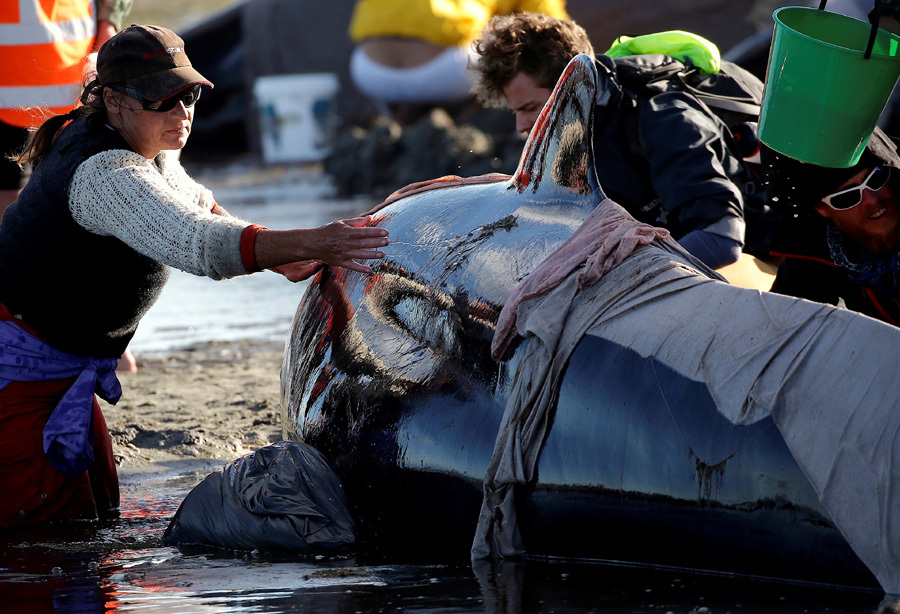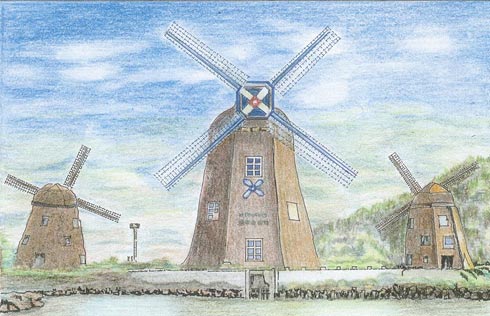New Zealanders race to save whales after 400 stranded
 |
|
Volunteers attend to some of the hundreds of stranded pilot whales still alive after one of the country's largest recorded mass whale strandings, in Golden Bay, at the top of New Zealand's South Island, February 10, 2017. [Photo/Agencies] |
"I walked away crying my eyes out," she said. "We knew there were limited things we could do." Volunteer rescue group Project Jonah said a total of 416 whales had stranded. When high tide came, volunteers managed to refloat about 50 the surviving whales while the other 80 or 90 remained beached.
The volunteers then formed a human chain in the water to try to stop the creatures from swimming back and stranding themselves again. It will likely take a day or so to determine how successful their efforts have been.
Volunteers plan to refloat more whales on Saturday.
Farewell Spit, a sliver of sand that arches like a hook into the Tasman Sea, seems to confuse whales and has been the site of previous mass strandings.
The Department of Conservation said about 500 volunteers had joined conservation workers on the beach.
Community ranger Kath Inwood said the volunteers were continuing to keep the stranded survivors damp and cool by placing blankets over them and dousing them with buckets of water.
The high tide allowed volunteers their one shot of the day to help some of the whales. Many plan to return for the high tide on Saturday to try to refloat more of the whales, including any that strand themselves again.
There are different theories as to why whales strand themselves, from them chasing prey too far inshore to them trying to protect a sick member of the group.













